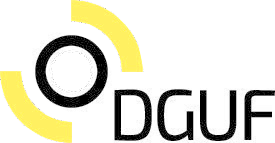The archaeologist and the public: The new role of archaeology in the 21th century
Identifiers (Article)
Identifiers (Files)
Abstract
It is increasingly necessary to have a self-reflective debate about the ethical responsibilities towards the public and the impact of archaeology on the “real world”. Not only is the public’s interest in archaeology higher than ever before, the public also wishes to actively participate and be involved in the decision-making process. Archaeologists must be on equal footing with the public, engage in a dialogue and involve it in the decision-making and work process. It must be acknowledged that the past has different meanings and values for different groups. Open Access publications and dissemination of information through new media are only the first steps, a true democratisation of archaeology must include public participation and support for community-led research projects. This cultural empowerment gives the public its own ‚archaeological voice‘, higher quality of life and generates higher interest and motivation in the preservation of cultural heritage. In exchange, archaeology gains a valuable resource that can be used for excavations, crowdsourcing and monitoring purposes. Initiatives and alternative funding models used in the anglophone world can serve as examples. The aim should be, that public archaeology must be part of the education of new generations of archaeologists.
Statistics








